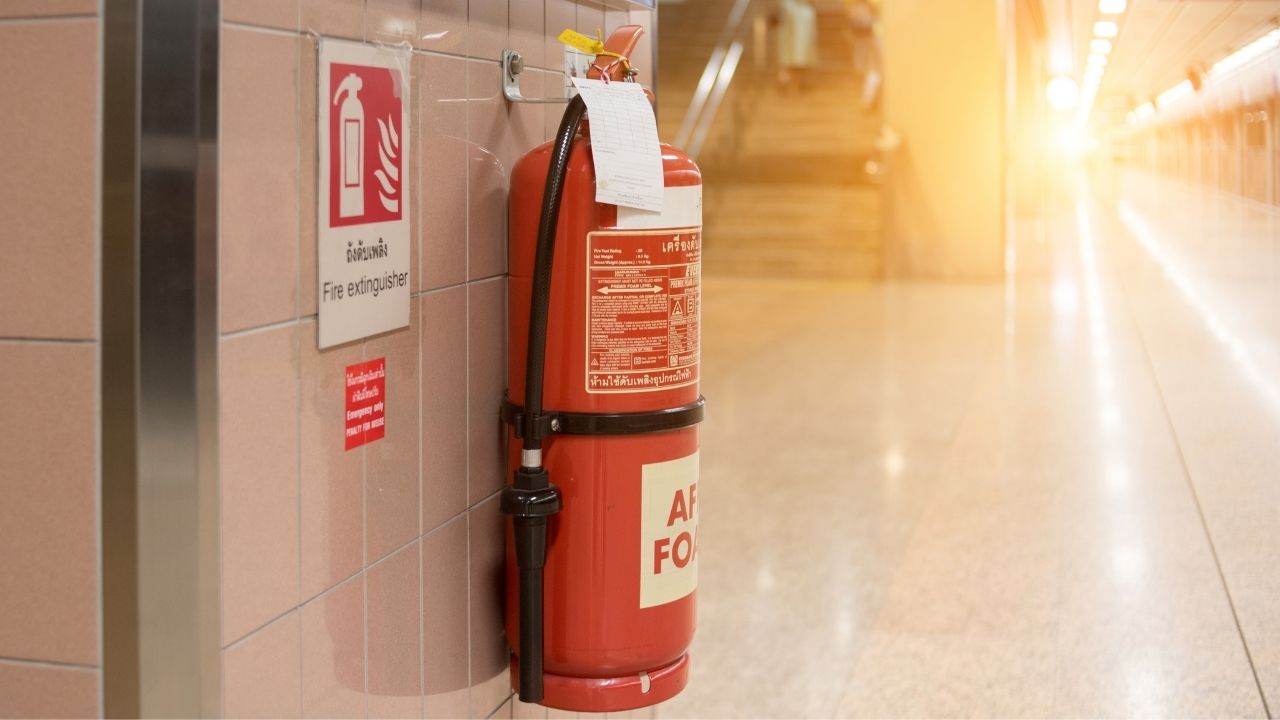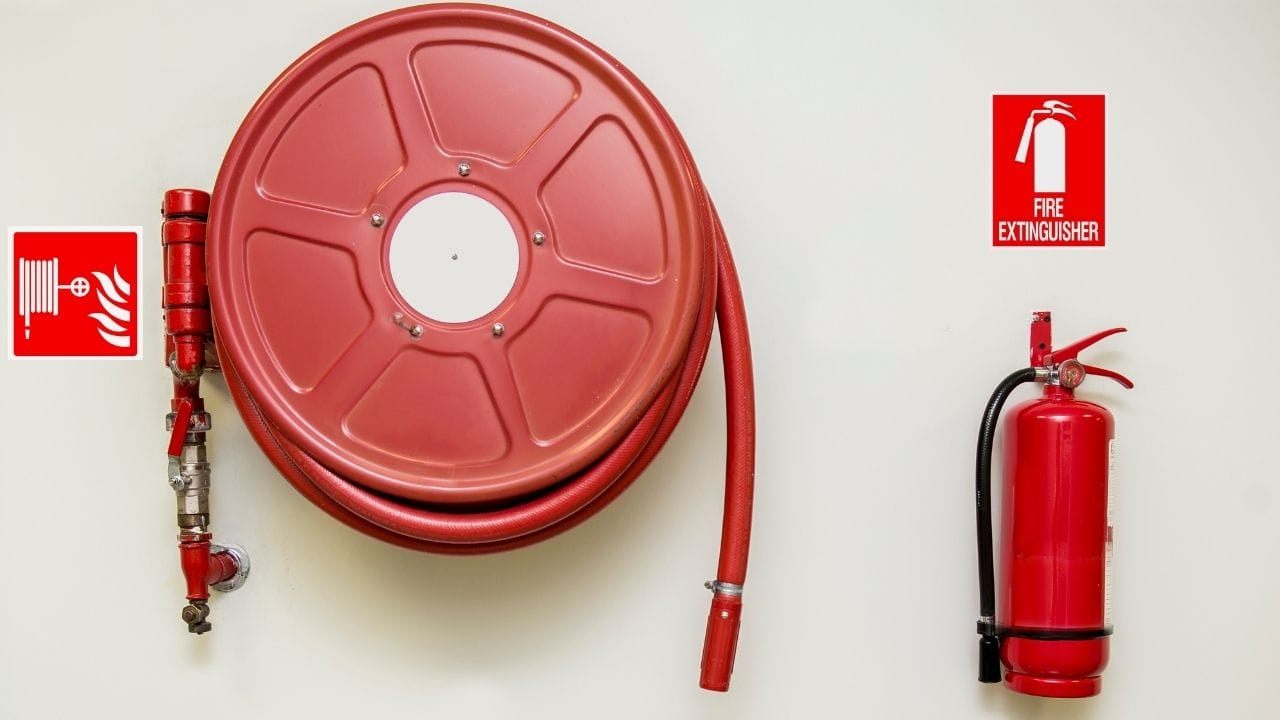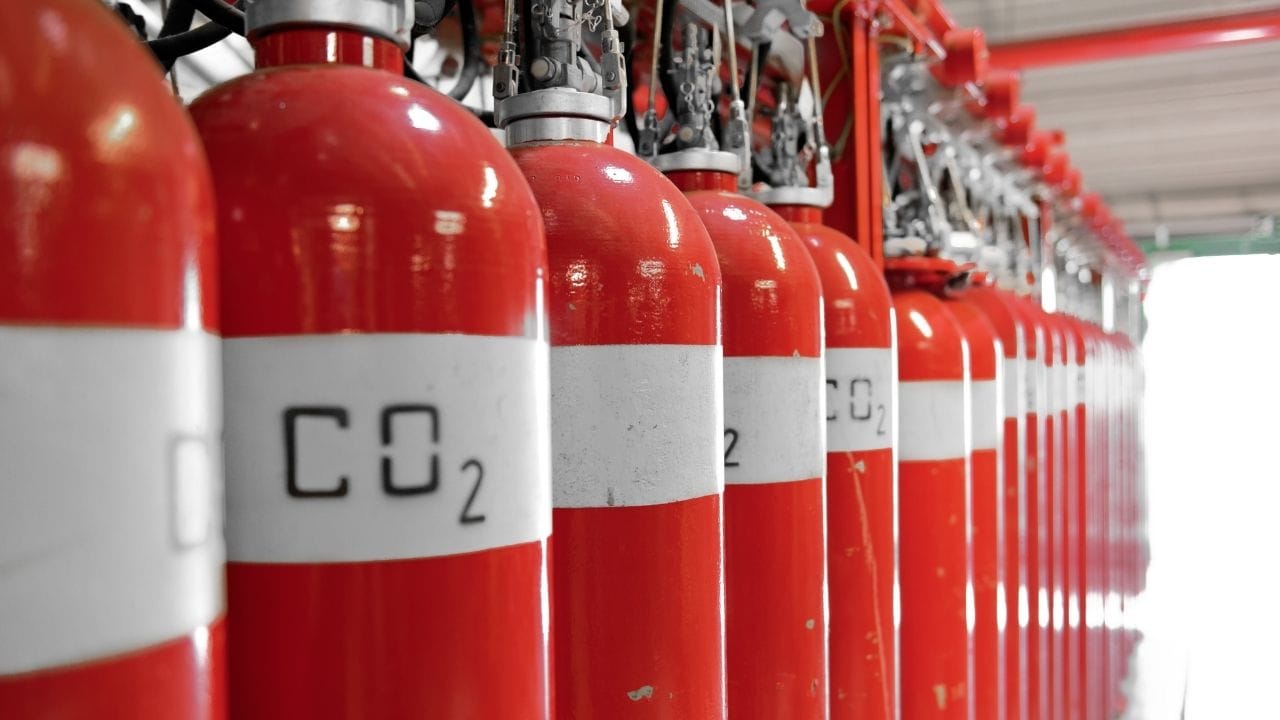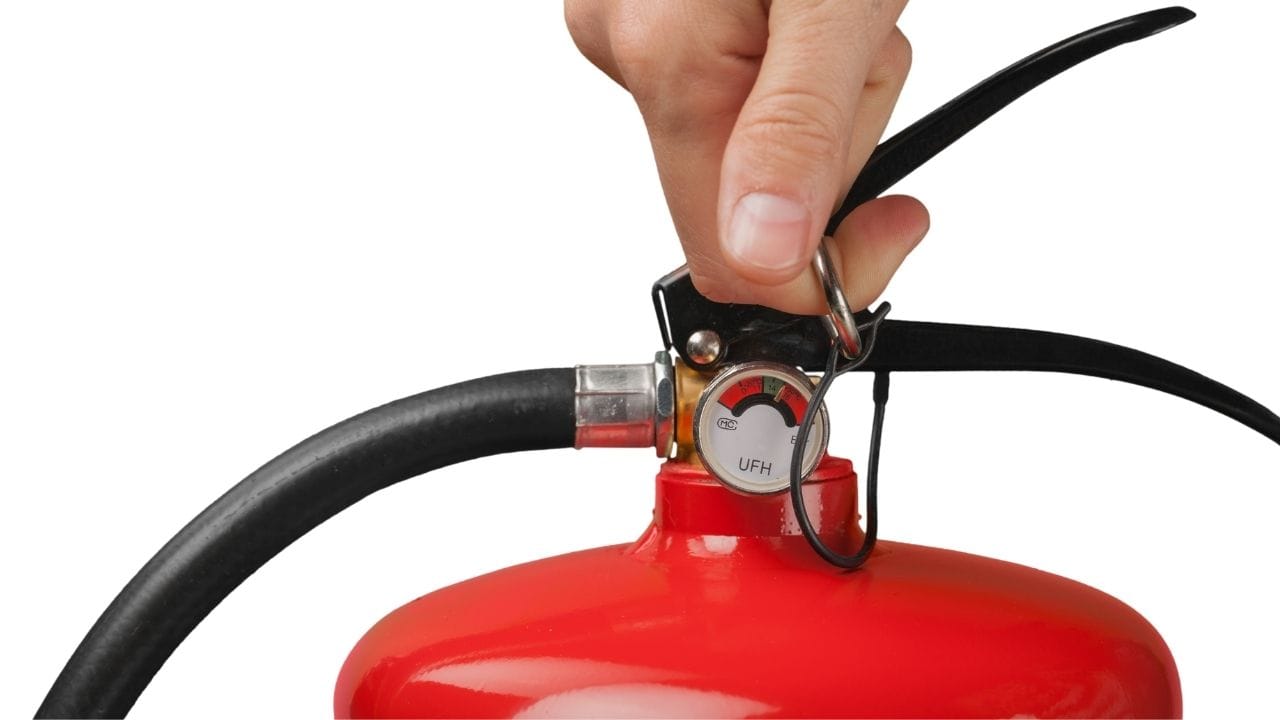

Having an extinguisher in your house is one of the most clever ideas you can have. You must have seen fire extinguishers in the shopping malls, schools, hospitals, or other organizations for fire safety.
A fire extinguisher is the first self-defense gadget in case of a fire. But you might wonder, how long do fire extinguishers last? You will be surprised to know that it does not last for a lifetime.
Did you know that a fire extinguisher needs to be maintained regularly? You do not want that in case of an emergency, and you pull out the fire extinguisher; it doesn’t work at all. If a fire extinguisher remains in storage for an extended period, it won’t work to its fullest potential in an emergency.
4 Vital Question to Take into Account when Owning a Fire Extinguisher


When you have an extinguisher in your home, you should be careful with treatment and the chemicals. Here are four vital questions you must answer to protect your family:
- How long do fire extinguishers last?
- What are the dry chemicals my extinguisher can have?
- Should I have a fire extinguisher in my house?
- What is the difference between rechargeable and disposable fire extinguishers?
How Long Do Fire Extinguishers Last?
Maybe, you are wondering about how long do fire extinguishers last? Fire extinguishers could last over 15 years, depending on the maintenance, the brand, and the chemicals. But it is essential to check the ticket to see if fire extinguishers expire.
Using an expired fire extinguisher could be prejudicial to your health. Sometimes, extinguishers manufactured will determine the time. According to experts, a fire extinguisher is not “good” when the dry chemicals within the cylinder lose their charge or when the pressure of the chemicals declines.
It can be seen in the pressure gauge. Besides, every fire extinguisher comes with an expiration date. The expiration date depends on the type of fire extinguisher mounted on the wall, which the national fire protection highly recommends checking. Even though these fire tags don’t determine an actual expiration date, it is crucial to avoid emergencies.
Moreover, you must not use an expired extinguisher, but keep in mind the maintenance!
Shelf Life of a Fire Extinguisher
According to the standards set by the National Fire Protection Association (NFPA), rechargeable fire extinguishers shall be recharged after every six years, while the disposable fire extinguishers must be repaired or replaced after every 12 years. It is crucial to replace a fire extinguisher for your fire safety if the material is expired.
A fire extinguisher that is kept untouched for more than 15 years shows more chances to expire.
Do Fire Extinguishers Have Dry Chemicals?
As the name suggests, dry chemicals are the reason for extinguisher effectiveness. A fire extinguisher has two main kinds of dry chemicals: sodium-potassium bicarbonate and mono ammonium phosphate, which blank fire and extinguish it. They are not entirely toxic, but handling them represents a risk.
Fire extinguishers work mainly by removing heat from the fire and cutting off the supply of oxygen to the fire. At the same time, some fire extinguishers release carbon dioxide and pressurized water to stop the spreading of fire. The hose or nozzle of the extinguisher shall be at the cause of the fire.
Moreover, you should never inhale because it brings throat irritation, cough, shortness of breath, and lung problems.
Should I Have a Fire Extinguisher in My House?
Yes, some fire departments stated that from 50 to 60 house fires are reported every hour in one day. Also, every day, many people die because of fire injuries. So, it is necessary to have at least one extinguisher per room. As fires can start in your kitchen, they could also start in your basement or room (even in the green area).
Moreover, there are small extinguishers that are useful to stop little fires. Sometimes, little fires end with the entire house, and sadly with deaths. Your extinguisher must be in a place where everyone is available to take it (except for kids).
Currently, more than half of American houses count with extinguishers, and many homes have been safe from spreading fire. If you already have one, it’s crucial to replace cracked ripped extinguishers.
What is the Difference Between Rechargeable and Disposable Fire Extinguishers?
There exist two main types of fire extinguishers:
- Rechargeable
- Disposable
The main difference between the two fire extinguishers is the head. In the case of rechargeable, it contains a metal head with a charge/recharge gauge. On the other hand, the disposable extinguisher has a plastic head with a full/empty meter.
Disposable Fire Extinguisher
This kind of fire extinguisher could last more than rechargeable. Besides, it could be expensive to buy it. Always remember to check the pressure gauge once a month at least to see if the extinguisher is in good condition.
Rechargeable Fire Extinguisher
A fire protection company must fill the rechargeable extinguishers due to the complexity of the filling process with the chemicals. It is cheaper than other types of extinguishers, and some companies prefer to work with this kind of extinguisher.
Types of Extinguishers


There exist many types of extinguishers with different chemicals, materials, and classifications. But the main types of extinguishers are the following:
- Water Pressure Fire Extinguisher
- Foam Fire Extinguisher
- Carbon Dioxide and Wet Chemical Extinguishers
- Dry Powder Extinguishers
As you might know, fires fell into different categories and classifications. So every type of extinguisher will help according to the kind of fire. There are four main classes of fire extinguishers divided into A, B, C, D, and sometimes E and F.
- A (great against paper, plastics, some wood materials, and cloth)
- B (works against flammable and combustible liquids like oil)
- C (use for fires that comes from electrical objects like panels)
- D (combustible materials like plutonium and calcium)
For example, water extinguishers belong to the A-class, which means they can’t be used against the C fires class. Every extinguisher has its main purpose and should pass through hydrostatic testing.
Get Professional Assistance when Needed


Having a fire extinguisher involves many responsibilities for your health and security. As you could read, there are many aspects of these vital tools, so you should count on professional help to determine the best option for you.
Do not think a fire extinguisher lasts for long. Now that you answer such a vital question like how long do fire extinguishers last? Do not hesitate to contact our experts for fire protection services.
